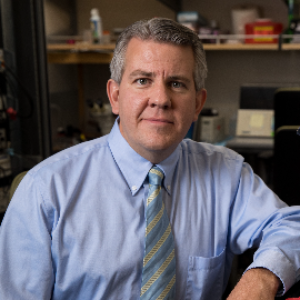Title : CB1-Dependent LTD in Ventral Tegmental Area GABA Neurons: a Novel Target for Marijuana
Abstract:
The ventral tegmental area is necessary for reward behavior where dopamine cells are critical for reward motivated behavior and attaching salience to novel rewarding stimuli. These dopamine cells are regulated by neighboring inhibitory GABA cells. Synaptic modifications known as synaptic plasticity are common in the VTA and thought to be tied to memory of reward and thus behavioral motivation. While dopamine cell plasticity has been thoroughly examined, much less is known regarding GABA cell plasticity. Using whole cell electrophysiology in juvenile/adolescent GAD67-GFP knock-in mice we examined excitatory plasticity in fluorescent VTA GABA neurons. A novel long-term depression (LTD) was induced in GABA cells that was dependent on cannabinoid receptor 1 (CB1) and metabotropic glutamate receptor 5. LTD was absent in CB1 knock-out mice, but preserved in heterozygous littermates. Chronic injections of Δ9-tetrahydrocannabinol (THC), a psychoactive ingredient in marijuana, occluded LTD compared to vehicle injections, however, a single exposure was insufficient to occlude LTD. Bath application of THC induced depression of glutamate synaptic activity and therefore downstream dopamine cells could be disinhibited, which would potentially result in increased reward. As synaptic modifications by drugs of abuse are often tied to addiction, this data also suggests a possible mechanism for the addictive effects of THC, which is most commonly seen in adolescents, by potentially altering reward behavioral outcomes.




